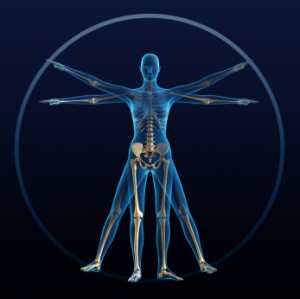
In people with lupus, the immune system begins to recognize and attack the body’s own tissues. This phenomenon is similar to “friendly fire” and causes inflammation in various parts of the body. It is important to realize, however, that lupus can affect different people in different ways and that signs and symptoms can come and go, producing periods of flares and remission. The following articles provide an introduction to how lupus may affect different parts of the body.
- Antiphospholipid Antibodies Antiphospholipis antibodies are antibodies directed against phosphorus-fat components of your cell membranes called phospholipids, certain blood proteins that bind with phospholipids, and the complexes formed when proteins and phospholipids bind. Approximately 50% of people with lupus possesses these antibodies, and over a twenty-year period of time, one half of lupus patients with one of these antibodies—the lupus anticoagulant—will experience a blood clot.
- Arthritis “Arthritis” is a broad term used to describe inflammation of the joints. There are many subsets of arthritis, but the arthritis seen in lupus closely resembles rheumatoid arthritis
- Cardiovascular System Lupus can affect the cardiovascular system, which includes your heart and blood vessels. In fact, cardiovascular disease, not lupus itself, is the number one cause of death in people with SLE. Therefore, it is very important that you take steps to maintain optimal cardiovascular health.
- Immune System in lupus and other autoimmune diseases, the immune system begins to recognize and attack “self.” In other words, the cells of the immune system begin to injure the body’s own tissues. This phenomenon is similar to “friendly fire” and can cause permanent scarring that ultimately jeopardizes the function of certain organs and systems in the body. Certain cells and processes of the immune system have been identified as playing a role in lupus.
- Kidneys About one half of people with lupus experience kidney involvement, and the kidney has become the most extensively studied organ affected by lupus.
- Lungs About 50% of people with SLE will experience lung involvement during the course of their disease. Five main lung problems occur in lupus: pleuritis, acute lupus pneumonitis, chronic (fibrotic) lupus pneumonitis, pulmonary hypertension, and “shrinking lung” syndrome.
- Nervous System Lupus can affect both the central nervous system (the brain and spinal cord) and the peripheral nervous system. Lupus may attack the nervous system via antibodies that bind to nerve cells or the blood vessels that feed them, or by interrupting the blood flow to nerves. Conditions associated with or sometimes seen in lupus include cognitive dysfunction, fibromyalgia, headaches, organic brain syndrome, and CNS vasculitis.
- Skin Most people with lupus experience some sort of skin involvement during the course of their disease. In fact, skin conditions comprise 4 of the 11 criteria used by the American College of Rheumatology for classifying lupus. There are three major types of skin disease specific to lupus and various other non-specific skin manifestautions associated with the disease.


